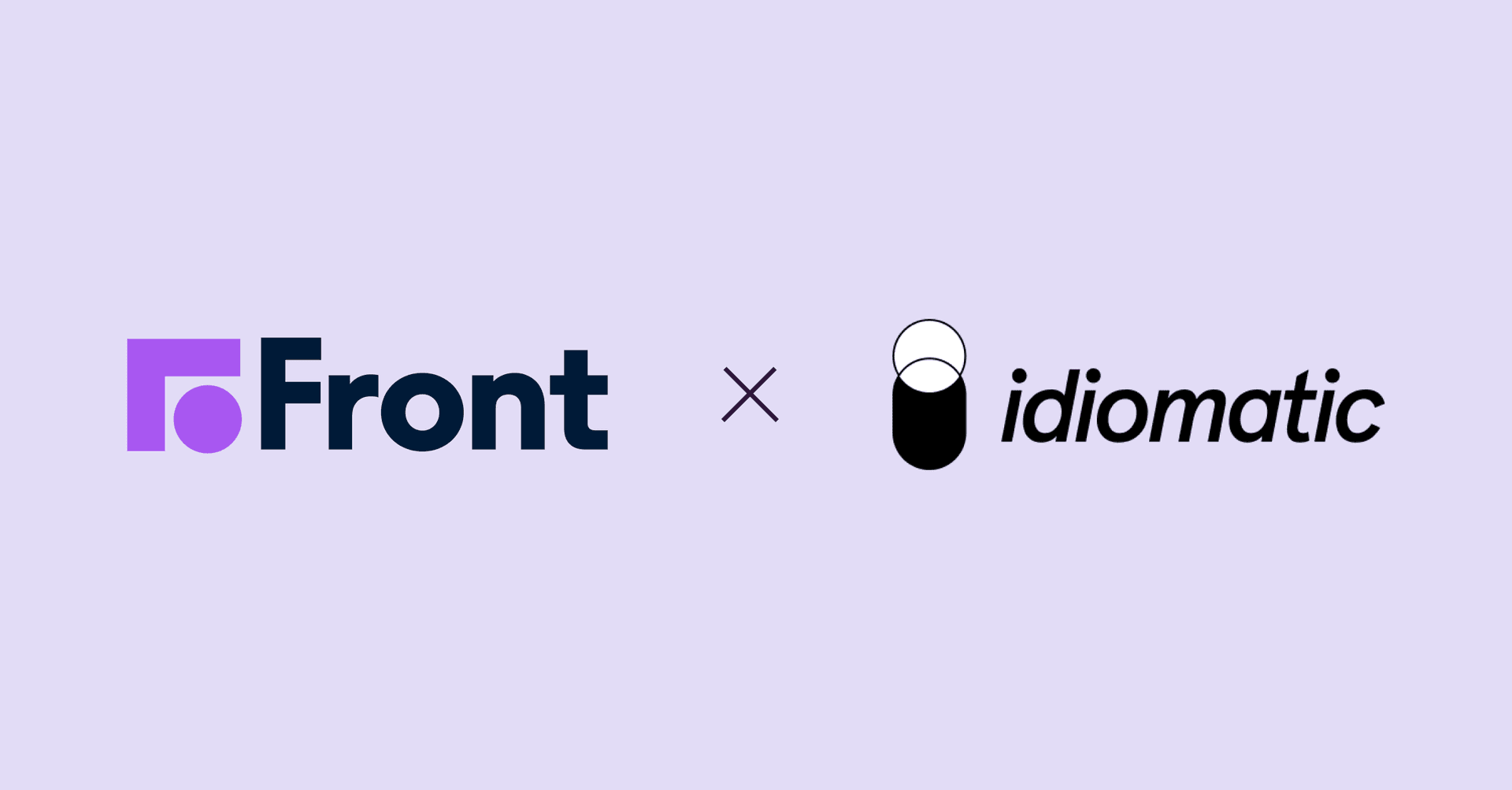Knowledge management tools are like a well-organized library for your organization, making it easy to catalog, access, and share valuable information. When knowledge is neatly arranged and readily available, teams can quickly find what they need, whether for internal projects or customer inquiries. This accessibility boosts productivity and streamlines decision-making processes.
Implementing these tools can lead to significant time and cost savings. Companies that embrace knowledge management systems can see a staggering 404% return on investment (ROI) over five years, along with a 30-50% increase in first-contact resolution — resulting in faster problem-solving for customers.
In this guide, we’ll explore the best knowledge management tools to enhance your internal operations and elevate your customer service.
What are knowledge management tools?
Knowledge management tools are software solutions aimed at facilitating the organization, creation, sharing, and management of knowledge within an organization or externally for customers.
Whether it’s a knowledge base, collaboration platform, or personal knowledge management tool, integrating a knowledge management tool into the tech stack is crucial.
A robust and efficiently structured knowledge management solution like a knowledge base can positively impact customer service and enhance effectiveness of internal teams. Specifically for customer service teams, implementing a knowledge base can alleviate the workload on those interfacing with clients.
For teams that want to lead in modern customer service, they need to look beyond a solution that offers basic knowledge management features — particularly in industries requiring a more personalized form of customer service. Support teams leverage knowledge bases as a critical component in delivering top-notch service, but it’s only one part of the puzzle.
Types of knowledge management tools
Knowledge management tools are critical in modern workplaces, facilitating efficient workflows and promoting collaboration. The primary types of knowledge management tools include:
Knowledge bases and wikis: Knowledge bases and wikis serve as centralized repositories for information within organizations. They provide a platform for storing and accessing a wide range of knowledge, including documents, procedures, FAQs, and best practices. Wikis enable collaborative editing, allowing team members to contribute, update, and refine content collectively. This collaborative aspect fosters a culture of knowledge sharing and continuous improvement.
Collaboration tools: Collaboration tools complement knowledge management systems by facilitating teamwork and information sharing among team members. These tools often integrate seamlessly with knowledge bases, enabling real-time collaboration on documents, projects, and tasks. Features such as shared workspaces, commenting, and version history tracking enhance communication and collaboration within teams. Front offers comprehensive collaboration tools within its knowledge base, empowering teams to work together effectively and share knowledge seamlessly.
Personal knowledge management tools: Personal knowledge management tools cater to individual users, allowing them to organize, manage, and retrieve their own knowledge effectively. These tools often include features for note-taking, task management, bookmarking, and information categorization. Personal knowledge management tools prioritize customization and personal productivity, empowering users to capture, organize, and access information according to their preferences and workflow.
The top 8 knowledge management tools
Best for holistic, modern customer service: Front
Best for transactional customer service: Zendesk
Best for providing an internal single space for organization: Notion
Best for streamlining internal information sharing: Guru
Best for companies using Zoho products: Zoho Desk
Best for larger enterprises looking for single-purpose knowledge base software: Helpjuice
Best for chat-based approach: Intercom
Best for personal note-taking organization: Obsidian
Front
Front is a leader in the knowledge management tool category with its easy-to-use knowledge base. Its knowledge base lets customers quickly resolve questions on their own time, freeing up space for the customer service team to solve more complex issues. It acts as a single source of truth for both internal and external parties. Front’s knowledge base enables scalability, reducing service costs without sacrificing quality.
Core features include:
Front Chat integration: Teams can connect their knowledge base to Front Chat so customers can switch between the knowledge base and support team.
No code: Front’s knowledge base allows teams to organize multi-layered categories, keep quality content high with versioning, and publish from one place. Users can add multimedia with embedded images, videos, tables, code blocks, and more with a rich text editor.
Not just one knowledge base: If you have different audiences or multiple brands, Front lets you tailor a knowledge base for each.
Designed to your brand: Front’s can customize your knowledge base to the look and feel of your help center, equipped with your logos and brand colors.
Front Customer Archetype Themes, the leading provider of Shopify website themes, uses its knowledge base to assist customers in configuring and personalizing their themes. The knowledge base features a sleek design that reflects a high-quality experience tailored to their brand. Utilizing the brand palette for the color scheme ensures a cohesive appearance. Additionally, the hero image subtly highlights their product offerings without diverting attention from the main objective: providing customers with the necessary answers.
After evaluating the Front Knowledge Base against several other options, we decided to move forward with Front because of the integration with the customer support features and their aggressive roadmap. It was ultimately an easy decision for us.
Simplissimmo, a premier provider of furnished property management services, utilizes its Front knowledge base to assist customers with check-in, payments, and general hotel inquiries. To enhance self-service support, the team implemented an advanced chatbot within their Front Chat platform. Customers can interact with the chatbot through the Front Chat widget, which guides them to relevant help center articles based on predefined conversation pathways. This approach expedites issue resolution while efficiently handling straightforward queries, reducing the workload on the support team.
Discover more ways Front customers use their knowledge base.
While Front’s knowledge base boasts extensive capabilities, Front as a contemporary customer service solution goes far beyond its knowledge base functionality. At the forefront of innovation, Front is engineered for the next era of customer service. It offers a suite of features such as:
Omnichannel inbox: Front consolidates teams customers’ preferred channels all within Front — making sure their experience stays seamless. With all apps consolidated into Front, teams can respond faster, especially with automated workflows.
Live chat and AI answers: AI Answers in Front’s live chat feature connects your knowledge base for AI to source from. Teams can scale up support with AI resolving customer inquiries instantly and giving time back to your team.
We’re seeing resolution rates up to 51% with AI Answers, which is amazing! However, it’s really all about CX for us. We’re just happy customers are getting faster and more consistent resolutions in chat.
Integrations to centralize your work: Front provides 110+ integrations and one platform to manage all channels. Users wanting to access WhatsApp, Dialpad, or Twilio can do so with one shared space to manage all integrations.
Automation and workflows to improve efficiency: Automation = faster and better outputs. Streamlined workflows means resolved customer conversations faster. Front automated workflows loop in the right team members or transfer messages to other departments based on keywords, priority, customer data, and more.

Analytics for insights, including from your knowledge base: If you know the numbers, you have insights to uplevel your customer experience. Teams using Front can deliver top-notch customer service by tracking metrics like service level agreement (SLA) effectiveness and identifying bottlenecks. They can also understand knowledge base visitor activity to guide and improve content strategy.
Front G2 rating: 4.7 / 5
Pricing: Starting at $19/seat/month

guide: 5 best practices for stellar self-service support
We spoke with top customer experience leaders at Loom, Airbnb, Lattice, and more to learn the secrets to successful self-service experiences.
Zendesk
Zendesk’s knowledge base software empowers users to author and distribute help center articles, enabling customers to locate solutions independently. Additionally, its solution utilizes Zendesk Answer Bot to analyze text across multiple channels, offering customers relevant article suggestions.
This software serves dual purposes, functioning as both an internal knowledge base for IT or HR departments and as a customer-facing help center.
Zendesk G2 rating: 4.3 / 5
Pricing: Starting at $19/agent/month

Notion
Notion serves as a versatile productivity tool with features including robust capabilities for creating and managing knowledge bases. While some organizations may opt to share Notion documents externally as a basic customer knowledge base, Notion is primarily designed for internal knowledge management and is ideally suited for this purpose.
Notion’s knowledge base functionality enables users to efficiently organize and store a wide array of information, documents, notes, and resources in a centralized hub. With the flexibility to create pages, sub-pages, and databases, along with access to numerous pre-designed templates, users can tailor their knowledge bases to align with their specific requirements and preferences.
Notion G2 rating: 4.7 / 5
Pricing: Starting at $0/month with limited features

Guru
Guru is a knowledge management platform crafted to facilitate the capture, organization, and sharing of knowledge within teams. It houses crucial information, documentation, and best practices, ensuring swift and effortless access to necessary knowledge resources. Guru is tailored specifically for internal knowledge management purposes and may not suit those seeking a customer-facing knowledge base solution.
With Guru, users benefit from organization and search functionalities. Knowledge can be structured into easily navigable cards, complete with tagging, categorization, and grouping options based on topic, team, or project. Knowledge owners have the ability to establish expiration dates for cards, prompting periodic reviews to maintain information accuracy.
Guru G2 rating: 4.7 / 5
Pricing: Starting at $10 per user/month

Zoho Desk
Zoho Desk, an integral component of the extensive Zoho product suite, is a customer support software equipped with a robust knowledge base feature. This feature enables businesses to furnish comprehensive and readily accessible support resources like articles, FAQs, guides, and tutorials.
The Zoho Desk knowledge base boasts customizable options, empowering users to establish distinct categories for each of their brands and sub-categories for brand-specific subjects. Users can refine existing content strategically by assessing metrics like views, likes, dislikes, article usage, and customer feedback.
Zoho Desk G2 rating: 4.4 / 5
Pricing: Starting at $14/user/month

Helpjuice
Helpjuice is a knowledge management software platform designed to assist businesses in organizing and overseeing content efficiently. With a search function reminiscent of Google’s, Helpjuice ensures users can swiftly locate information.
Helpjuice users can create articles using the platform’s built-in editor and publishing interface, facilitating quick adding of content. The platform offers analytics and data insights, including metrics on total searches, found answers, and support contacts.
Helpjuice G2 rating: 4.5 / 5
Pricing: Starting at $120/month

Intercom
Intercom, a customer messaging platform, provides a knowledge base equipped with features including article categorization and tagging, rich formatting options, and search functionality.
The knowledge base seamlessly integrates with other Intercom features such as live chat and messaging, ensuring a cohesive support experience for customers.
Intercom G2 rating: 4.5 / 5
Pricing: Starting at $39/user/month

Obsidian
Obsidian is a knowledge management system designed to help individuals organize, connect, and navigate their digital information effectively.
It operates on the principle of a personal knowledge graph, which allows users to create and interlink notes, ideas, and data in a non-linear fashion. Obsidian is built upon the concept of [[Markdown]], a lightweight markup language, making it easy to write and format notes using plain text.
Obsidian G2 rating: 4.5 / 5
Pricing: Personal use - free, Commercial use - $50/year

Why do knowledge management tools matter?
A recent IDC survey illustrates the many benefits from knowledge management systems: improvements in business execution, customer support, satisfaction, and employee performance.
They’re important for a few key reasons:
They streamline information access and decision-making. Knowledge management tools provide a centralized repository of knowledge. With these tools, employees can easily search for and retrieve relevant information, reducing the time spent on gathering data and making informed decisions. Features like categorization, tagging, and advanced search functionalities allow users to quickly locate specific information within vast knowledge bases.
Facilitation of collaboration and knowledge sharing. By providing platforms for sharing insights, best practices, and lessons learned, these tools foster a culture of collaboration and continuous learning. Features like real-time editing, commenting, and version control enable teams to work together seamlessly on projects and initiatives, regardless of geographical location or time zone differences.
They enhance customer satisfaction and support. Knowledge management tools play a crucial role in enhancing customer satisfaction and support by enabling self-service and quick resolution to inquiries. By providing customers with access to knowledge bases, FAQs, and troubleshooting guides, organizations empower them to find answers to their questions independently. This not only improves the customer experience but also reduces the burden on support teams, allowing them to focus on more complex issues and provide personalized assistance where needed.
They contribute to knowledge preservation and competitive advantage. By capturing and codifying tacit knowledge, documenting best practices, and preserving institutional knowledge, these tools ensure that valuable insights and expertise are retained within the organization, even as employees come and go. This knowledge repository becomes a strategic asset that enables organizations to innovate, adapt to changes in the market, and maintain a competitive edge over time.
Choosing the right partner for your knowledge management tools
Front stands out as a top choice among knowledge management solutions due to its comprehensive, modern customer service toolset and user-friendly interface. Its knowledge base functionality is easy to use, scalable, customizable, and offers seamless integration with other features like live chat.
Front’s commitment to ongoing innovation and customer satisfaction ensures that teams have access to cutting-edge tools and features to stay ahead in today’s competitive landscape. Whether it’s enhancing collaboration, improving internal processes, or delivering exceptional customer experiences, Front empowers teams to achieve goals and drive long-term success.
Written by Sara Shaughnessy
Originally Published: 3 January 2024











